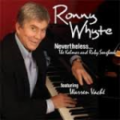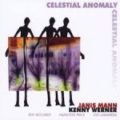My Kinda Love by Tina May
Posted on Saturday, May, 23, 2015 | Comments Off on My Kinda Love by Tina May
Tina May has always followed her own star, often popping up in challenging or off-beat situations. The root of her talent, though, as Hep producer Alistair Robertson emphasises in his sleeve-note, lies in her jazz sensibility. May is a true jazz singer, at ease with jazz musicians and content to operate in a jazz context. All of this is reaffirmed here where she works mostly with an accomplished small group, the arrangements largely in the hands of a regular collaborator, the saxophonist and bandleader Frank Griffith, but with the added layering of a string quartet on four of the dozen tracks. Robertson sees this new album as a follow-on to Divas, also on Hep, the song choices far from routine with the added bonus of two original compositions by the veteran tenor-saxophonist Duncan Lamont. The title track is a relaxed hymn to love from 1929, Tina at one with the swinging background, Sammy Mayne’s alto prominent. In complete contrast, her reading of Lazy Afternoon, arranged by John Jannson, complete with its Satie-esque piano introduction, is languorous and heartfelt, the strings overlaid softly by the Griffith clarinet. Tina’s ability to move between vocal registers is notable here. Bassist Dave Green sets up Tina’s perky treatment of S’Posin’, this adorned by the welcome presence of trumpeter Janusz Carmello, Griffith spirited on clarinet ahead of John Pearce’s superb piano solo. There’s evidence throughout this absorbing album of careful forethought, each track given a distinctive setting, Tina’s honeyed sound and perfect intonation applied as effectively to up-tempo swingers as they are to its more thoughtful pieces, each set of lyrics given proper attention. Nothing muddled or over-stretched here. Good to hear composer Lamont’s tenor-saxophone on his mellow Where Were You In April and Frank’s impressive tenor on A Sunday Kind of Love, Tina ‘positively flirtatious’ on this one in Robertson’s words. The final song, I’m...
Black Bar Juke Box by Allan Harris
Posted on Saturday, May, 23, 2015 | Comments Off on Black Bar Juke Box by Allan Harris
The myriad fans who’ve fallen under the spell of Gregory Porter need to give Allan Harris a listen. Though Harris has a dozen previous albums to his credit, including fine tributes to Nat King Cole and Billy Strayhorn, he seems long overdue for Porter-sized accolades. For Black Bar Jukebox, a sly collection of covers and originals, Harris borrows Porter producer Brian Bacchus, who draws forth many of the qualities that have propelled Porter to superstardom: the same laidback assurance and that enticing blend of Sammy Davis Jr. dynamism, Cole sophistication and George Benson jazz smarts. Eight of the 13 tracks are covers, extending from the plushness of “My Funny Valentine” and show-tune fizz of “A Lot of Livin’ to Do” to a masterfully soulful rendition of Bernie Taupin and Elton John’s “Take Me to the Pilot” and a moving midtempo treatment of John Mayer’s “Daughters” (the sole track featuring Harris’ distinguished guitar work). There’s also a double nod to Kenny Rankin, with a bossa-driven “Catfish” and the lovely, lilting “Haven’t We Met?,” plus a rendering of Eddie Jefferson’s “I Got the Blues” (based on “Lester Leaps In”). The four Harris originals are equally wide-ranging, beginning with the silken “Miami” (strongly reminiscent of “Where Flamingos Fly”) and misty “Can It Be This Is a Dream,” and progressing to the swinging optimism of “Love’s the Key” and the edge-of-breakup anthem “A Little Bit Scared.” By: Christopher Loudon for “Jazz...
Introducing Katie Thiroux
Posted on Saturday, May, 23, 2015 | Comments Off on Introducing Katie Thiroux
Bassist/Singer/Composer Katie Thiroux released her first CD on February 3, 2015 titled “Introducing Katie Thiroux”. Before I even listened to this CD, I read the liner notes and knew this CD from Katie Thiroux would be terrific. Soon after I was able to see Katie in person when she performed with the Larry Fuller Trio and Graham Dechter at “Pete Carlson’s Jazz For Jazz Lovers Series”. When I first listened to Katie’s CD, I was so focused on her beautiful voice and singing style, I somewhat overlooked her great Bass playing. However, at the Graham Dechter concert, Katie’s Bass brilliance was in full view. Katie told me that she had always loved Ray Brown and that she had spent some time working with John Clayton. At the concert, she played a couple of great Ray Brown arrangements, and if you closed your eyes, you might have thought is was Ray Brown or John Clayton playing. The audience loved her Bass playing and she received many rounds of applause every time she played a solo riff. Katie Thiroux is a multi-talented musical threat, she sings with great style as good as any of the best Jazz singers around today and her Bass playing would be welcomed in the best Jazz groups. Katie studied with the great Jazz Vocalist Tierney Sutton. So she has had guidance from two Jazz giants, Clayton and Sutton. The results of her years of study are evident in her Bass playing and her singing, she is one of the best around in both categories. Here is a quote from John Clayton “Katie has developed into a swinging and “Killer” Base player! Of course, I heard her talent and advanced abilities when she was younger, but her playing now is something else–It’s at another level. I’m talking about the level of playing that allows the groove to...
Ronny Whyte – “Nevertheless”
Posted on Sunday, October, 19, 2014 | Comments Off on Ronny Whyte – “Nevertheless”
Ronny Whyte may be one of the last of the old-fashioned piano bar/saloon singers. At best, he’s one of a fading breed. And that makes his every release a happening. This CD is no exception. On his latest Audiophile disc, this cabaret/piano bar mainstay offers a tribute to the beloved songs of Bert Kalmar and Harry Ruby. While arguably a trite overshadowed by peers of their generation like Berlin, Porter and such, the duo is well known to purists of the American Songbook with evergreens under their belt like “A Kiss to Build a Dream On” (with Oscar Hammerstein II) and “I Wanna Be Loved by You” (music co-written with Herbert Stothhart). Any respectable lover of sweet saloon songs is quite familiar with this team. Here, Whyte serves them with dignity, fun, respect and that special reverence for greatness that only a true connoisseur can impart. Being a serious throwback to the days of Mabel Mercer at RSVP and Bobby Short as his career grew into star status, Whyte’s the perfect choice for Kalmar and Ruby. As alluded to, there are only a handful left who can touch those names with great style and Ronny Whyte is at the top of that list. At times, his style is minimalist, letting words and music speak for themselves with little embellishments, as on the album’s cheeky opener, “Give Me the Simple Life” (lyric: Ruby; music: Rube Bloom) and a tender “Thinking of You,” with its hauntingly moody assist from Lou Caputo on reeds. Other times, Whyte shows what a great swing arranger he is on the likes of “Who’s Sorry Now?” (music: Ted Snyder) and “Three Little Words.” He often sets a pace that slows down as he ruminates on the lyrics, drawing out relevant words that can almost bring songs to a halt. Sometimes, he allows the music to swell...
Libby York “Memoir”
Posted on Sunday, June, 22, 2014 | Comments Off on Libby York “Memoir”
While Diana Krall continues to top vocal polls and rack up platinum album sales, Chicagoan Libby York remains comparatively obscure. So consider this open invitation to all Krall fans to dip into York’s meager—just four albums across 15 years—but mighty oeuvre. Memoir, a terrific collection of standards, is an ideal place to start. What you’ll discover is an interpreter who is not only every inch Krall’s equal but also bears a strong vocal resemblance to the Canadian superstar: warm, intimate and imbued with a fogbound sexiness. York has always demonstrated superb taste in both song selection and sidemen. Here, traveling from a tender “How Long Has This Been Going On?” and a sly “When in Rome” to a shimmering “My Little Boat” and sprightly “Walk Between the Raindrops,” she is seamlessly supported by pianist John di Martino (her co-arranger on all 11 tracks), bassist Martin Wind, drummer Greg Sergo and cornet player Warren Vaché. Guitarist Russell Malone joins on three tracks, including a misty “Thanks for the Memory,” and Vaché twice contributes vocal accompaniment, adding gravel-filled joy to “Let’s Call the Whole Thing Off” and a cleverly updated take on the Bing Crosby-Bob Hope chestnut “Put It There, Pal.” (By Christopher Loudon for “Jazz...
Janis Mann & Kenny Werner
Posted on Sunday, June, 22, 2014 | Comments Off on Janis Mann & Kenny Werner
Five years ago, L.A.-based vocalist Janis Mann paid exquisite tribute to timekeepers, alternating among a quartet of preeminent drummers on A Perfect Time. Now, two albums later, two of the four—Roy McCurdy and Joe LaBarbera—return for the equally sublime Celestial Anomaly. This time, though, co-billing is ascribed to pianist Kenny Werner. Bassist Hamilton Price, as impressive as his better-known bandmates, completes the rhythm section. Astronomically speaking, the title refers to an apsis, the farthest point between two bodies in elliptical orbit, which seems an odd insinuation. If the two bodies are Mann and Werner, then their union couldn’t be closer—a masterful fusion of musical minds. And though Werner’s playing is expectedly brilliant, the entire ensemble, whether anchored by McCurdy or LaBarbera, is tight and interdependent. Mann is often likened to Sarah Vaughan, and certainly shares Sassy’s dark, rich texture and her versatility. But Mann adds an enticing air of mystery, a dusky hint of veiled possibilities. She is not only one of the most skilled vocalists around, but one of the most alluring as well. Her excellent taste in standards here extends from a smoky “So in Love” and an intriguingly propulsive “Early Autumn” to an entrancing “Wild Is the Wind” and spellbinding “Throw It Away.” More contemporary material is as shrewdly interpreted, including gorgeous readings of Elton John’s “Come Down in Time” and Sting’s “Fragile.” (By Christopher Loudon for “Jazz...








 The VOCAL SOUND OF JAZZ began airing on 89.5 FM (now WHRV-FM) on January 4th 1980. Originally a 30 minute program that aired on Friday evenings, the program expanded to it current 60 minute format and moved to Saturday evenings during the 90s. It was also aired over WUOM in Ann Arbor, Michigan for a five-year period in the late 1980s.
Produced and hosted by Jack Frieden since its premiere broadcast, the program has always attempted to spotlight both jazz vocal music’s post 1950s history, as well as the new singers and songs that will continue to play an increasingly prominent role in the music’s future. With the internet’s ability to attract and entertain jazz vocal fans globally, Jack looks forward to broadening the mission and reach of the “Vocal Sound of Jazz” in coming years.
Email Jack Frieden
Vocal Sound of Jazz LLC
1056 Downshire Chase
Virginia Beach, Va. 23452
Ph: 757 438 6785
The VOCAL SOUND OF JAZZ began airing on 89.5 FM (now WHRV-FM) on January 4th 1980. Originally a 30 minute program that aired on Friday evenings, the program expanded to it current 60 minute format and moved to Saturday evenings during the 90s. It was also aired over WUOM in Ann Arbor, Michigan for a five-year period in the late 1980s.
Produced and hosted by Jack Frieden since its premiere broadcast, the program has always attempted to spotlight both jazz vocal music’s post 1950s history, as well as the new singers and songs that will continue to play an increasingly prominent role in the music’s future. With the internet’s ability to attract and entertain jazz vocal fans globally, Jack looks forward to broadening the mission and reach of the “Vocal Sound of Jazz” in coming years.
Email Jack Frieden
Vocal Sound of Jazz LLC
1056 Downshire Chase
Virginia Beach, Va. 23452
Ph: 757 438 6785